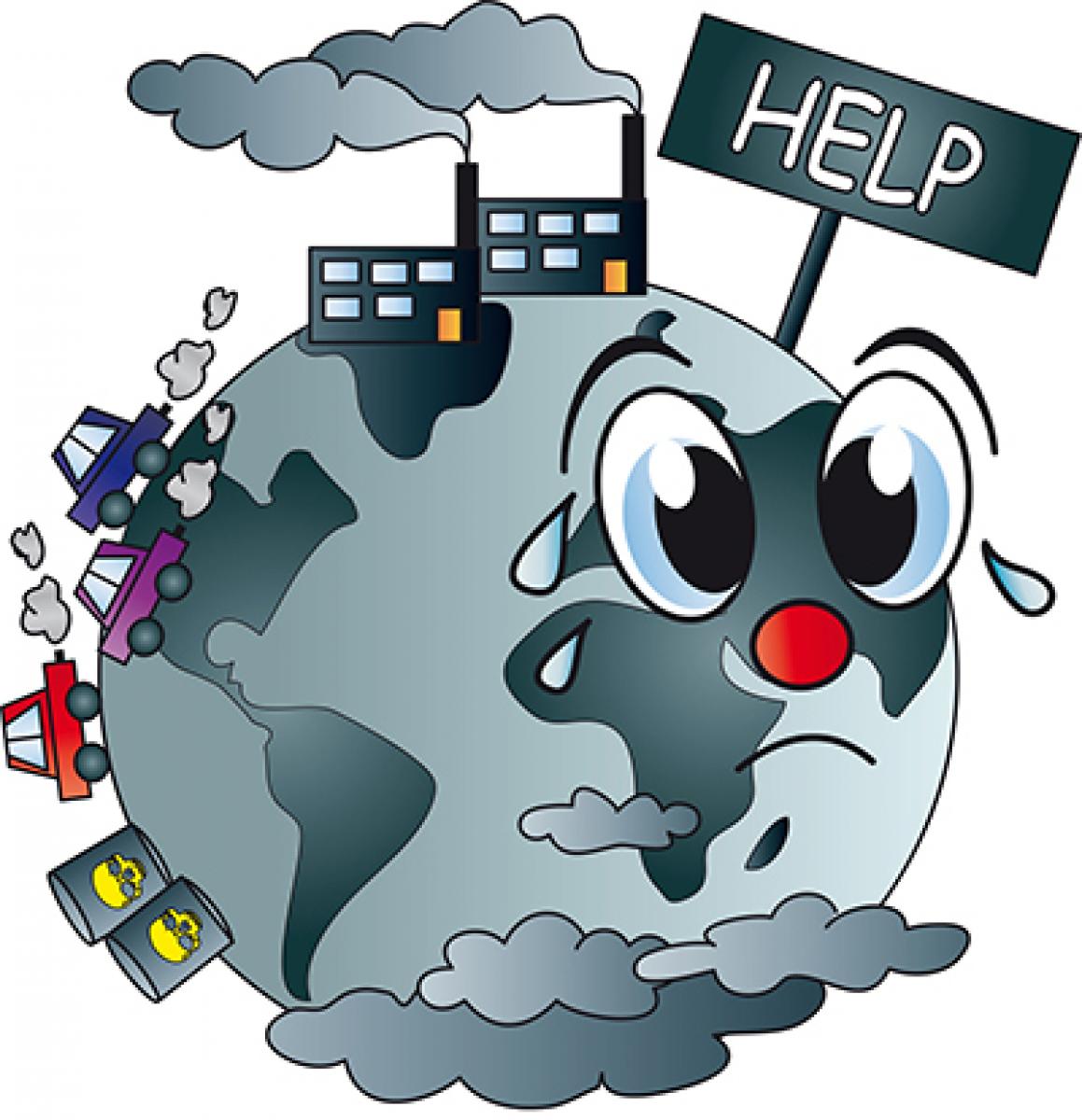Environmental legislation II

Environmental law plays a very crucial and important role in regulating the use of natural resources and in protecting the environment. The success of environmental legislations mainly depends on the way they are enforced. Legislation also serves as a valuable tool for educating masses about their responsibility in maintaining healthy environment.
.jpg) The awareness and consideration for environment covers several environmental issues such as pollution of water, air and soil, land degradation, industrialisation, urbanisation, depletion of natural resources etc.
The awareness and consideration for environment covers several environmental issues such as pollution of water, air and soil, land degradation, industrialisation, urbanisation, depletion of natural resources etc.
Environmental law plays a very crucial and important role in regulating the use of natural resources and in protecting the environment. The success of environmental legislations mainly depends on the way they are enforced. Legislation also serves as a valuable tool for educating masses about their responsibility in maintaining healthy environment.
Numerous legislations have already been put forth at national and international levels. In this lesson, you will learn about some important environmental legislation. Indian legislations are called Acts whereas the international legislations are in the form of conventions, protocols and treaties.
Need for legislation
In the recent past, numerous environmental problems have become threatening for humanwelfare. An important aspect of environmental problems is that their impact is not confinedto the source area but spills over far and wide area. Effective legislation is needed in order to prevent misuse and degradation of the environment.
To curb the destructive practices of unscrupulous people, forest mafia groups, poachers, polluters and over exploitation of environmental resources, effective legislation is necessary. Pollution is an important factor and it does not observe political territories or legislative jurisdictions. Thus environmental problems are intrinsically global in nature. Therefore, to prevent such problems environmental legislation is not needed only at the national level but also at the international level.
The Air (Prevention and Control of Pollution) Act of 1981 and amendment, 1987 To implement the decisions taken at the United Nations Conference on the Human Environment held at Stockholm in June 1972, Parliament enacted the nationwide Air Act.The main objectives of this Act are to improve the quality of air and to prevent, control and abate air pollution in the country. Important provisions of this Act are given below:
- The Air Act’s framework is similar to that of the Water Act of 1974. To enable an integrated approach to environmental problems, the Air Act expanded the authority of the central and state boards established under the Water Act, to include air pollution control.
- States not having water pollution boards were required to set up air pollution boards.
- Under the Air Act, all industries operating within designated air pollution control areas must obtain “consent” (permit) from the State Boards.
- The states are required to prescribe emission standards for industry and automobilesafter consulting the central board and noting its ambient air quality standards.
- Act granted power to the Board to ensure compliance with the Act including thepower of entry for examination, testing of equipment and other purposes and powerto take the sample for the purpose of analysis of air or emission from any chimney, flyash or dust or any other outlet in such a manner as may be prescribed.
- Prior to its amendment in 1987, the Air Act was enforced through mild court administered penalties on violations. The 1987 amendment strengthened the enforcement machinery and introduced stiffer penalties.
Now, the boards may close down a defaulting industrial plant or may stop its supply of electricity or water. A board may also apply to the court to restrain emissions that exceed prescribed limits. Notably, the 1987 amendment introduced a citizen’s suit provision into the Air Act and extended the Act to include noise pollution.
Environment Acts
The most important legislation in this category is The Environment (Protection) Act of1986. Through this Act Central Government gets full power for the purpose of protecting and improving the quality of the environment and preventing, controlling and abating pollution. Details of this Act are given below:
The Environment (Protection) Act of 1986
In the wake of the Bhopal tragedy, the government of India enacted the Environment (Protection) Act of 1986. The purpose of the Act is to implement the decisions of the United Nations Conference on the Human Environment of 1972, in so far as they relate to the protection and improvement of the human environment and the prevention of hazards to human beings, other living creatures, plants and property.
The Act is an “umbrella” for legislations designed to provide a framework for Central Government, coordination of the activities of various central and state authorities established under previous Acts, such as the Water Act and the Air Act. In this Act, main emphasis is given to “Environment”, defined to include water, air and land and the inter-relationships which exist among water, air and land and human beings and other living creatures, plants, micro-organisms and property.
“Environmental pollution” is the presence of pollutant, defined as any solid, liquid or gaseous substance present in such a concentration as may be or may tend to be injurious to the environment. “Hazardous substances” include any substance or preparation, which may cause harm to human beings, other living creatures, plants, microorganisms, property or the environment. The main provisions of this Act are given below:
Section 3 (1) of the Act empowers the centre to “take all such measures as it deemsnecessary or expedient for the purpose of protecting and improving the quality of theenvironment and preventing, controlling and abating environmental pollution”. pecifically,the Central Government is authorised to set new national standards for the quality of theenvironment (ambient standards) as well as standards for controlling emissions and effluentdischarges; to regulate industrial locations, to prescribe procedures for managing hazardous substances; to establish safeguards preventing accidents, and to collect and dismantleinformation regarding environmental pollution.
- By virtue of this Act, Central Government has armed itself with considerable powers which include coordination of action by state, planning and execution of nationwide programmes, laying down environmental quality standards, especially those governing emission or discharge of environmental pollutants, placing restriction on the location of industries and so on.
- The coverage of powers include handling of hazardous substances, prevention of environmental accidents, inspection of polluting units, research, establishment of laboratories, dissemination of information, etc.
- The Environment (Protection) Act was the first environmental legislation to give the
- Central Government authority to issue direct orders, included orders to close, prohibit or regulate any industry, operation or process or to stop or regulate the supply ofelectricity, water or any other service to an industry, operation and process. Another power granted to the Central Government was to ensure compliance with the Act which included the power of entry for examination, testing of equipment and other purposes and power to analyse the sample of air, water, soil or any other substance from any place.
- The Act explicitly prohibits discharges of environmental pollutants in excess of prescribed regulatory standards. There is also a specific prohibition against handling hazardous substances except those in compliance with regulatory procedures and standards. Persons responsible for discharge of pollutants in excess of prescribed standards must prevent or mitigate the pollution and must also to report the governmental authorities.
- The Act provides provision for penalties. Any person who fails to comply with any of the provisions of the Act, or the rules, orders, or directions issued under the Act shall be punished. For each failure or contravention the punishment included a prison term up to five years or fine up to Rs. 1 lakh, or both. The Act imposed an additional fine of up to Rs. 5,000 for every day of continuing violation. If a failure or contravention occurs for more than one year after the date of conviction, an offender may punish with imprisonment term, which may be extend to seven years.
- The Environment (Protection) Act contains significant innovations for its enforcement, not contained in any other pollution control legislation at the time of the Act’s adoption.
- Section 19 provides that any person, in addition to authorised government officials, may file a complaint with a court alleging an offence under the Act. This “Citizens’ Suit” provision requires that the person has to give notice of not less than 60 days of the alleged offence of pollution to the Central Government or the competent authority. Under the Act, the Central Government may, by notification in the office Gazette, make rules for the enforcement of the Act.
Next Story














